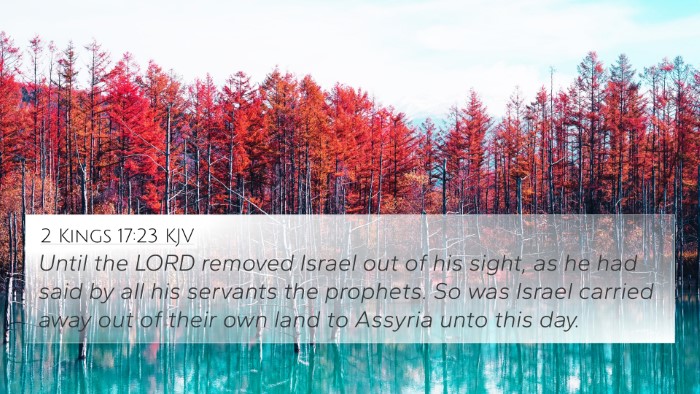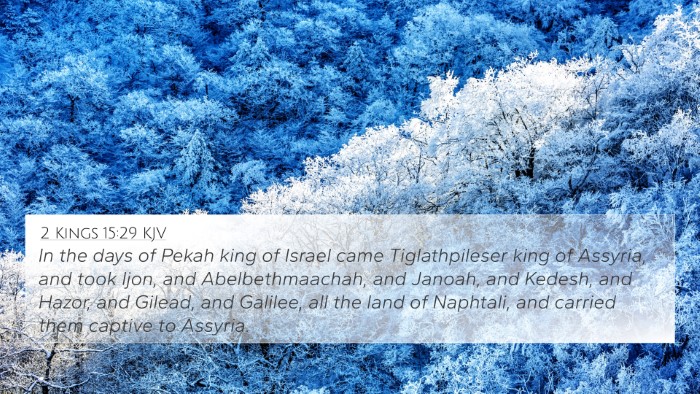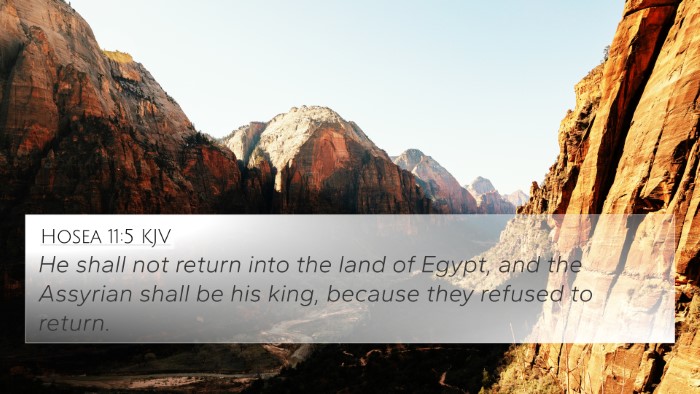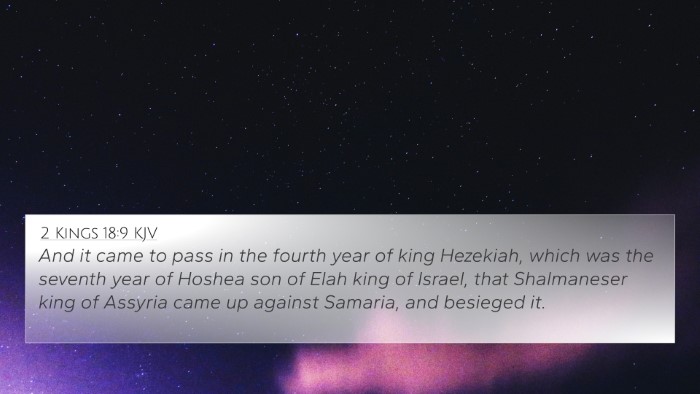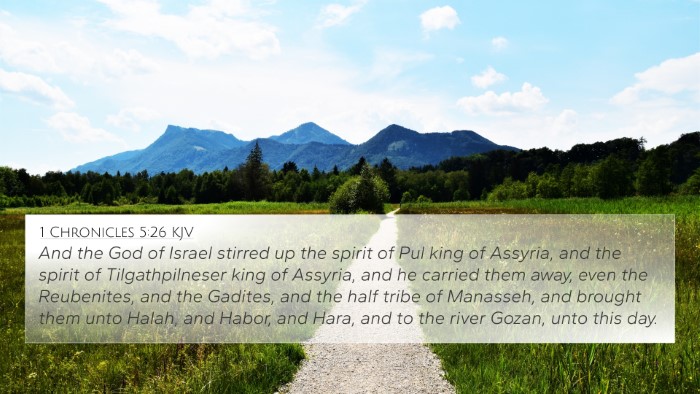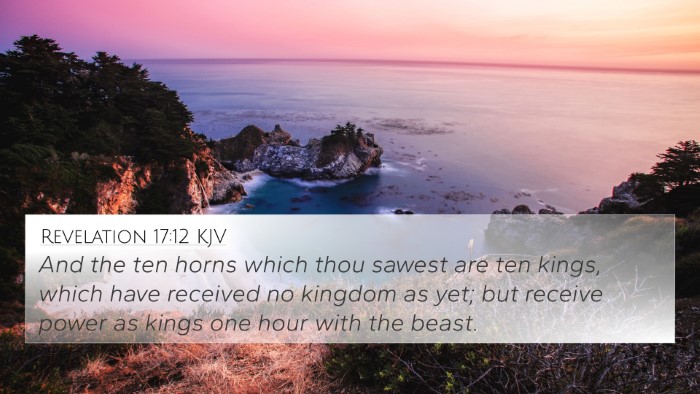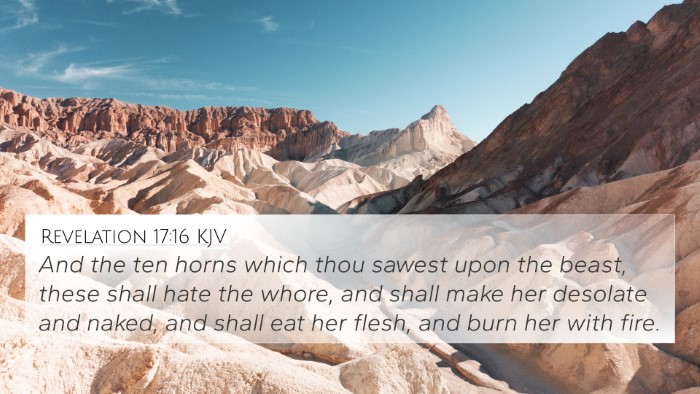Ezekiel 23:9 - Meaning and Analysis
This passage from the Book of Ezekiel serves as a profound metaphorical depiction of the fate of Jerusalem and Samaria, utilizing the imagery of two sisters, Ahola and Aholibah, to represent two ancient kingdoms. Below is a summarized biblical interpretation and explanation of Ezekiel 23:9, derived from public domain commentaries.
Verse Context
Ezekiel 23:9 reads: "Wherefore I have delivered her into the hand of her lovers, into the hand of the Assyrians, upon whom she doted." This verse is situated within a broader prophetic narrative wherein Ezekiel conveys God's judgment upon Israel represented through these women.
Interpretation
The core message reflects the idea of betrayal and spiritual infidelity of God’s people.
- Spiritual Adultery: The reference to the sisters symbolizes the unfaithfulness of the nation towards God, likening their idolatrous actions to that of an adulterous spouse.
- Judgment: The Assyrians represent the impending judgment that would come upon Israel and Judah due to their grievous sins.
Combined Insights from Commentaries
- Matthew Henry: He emphasizes the idea of spiritual betrayal, explaining the allegorical representation of Ahola and Aholibah as indicative of the divided hearts of Israel and Judah.
- Albert Barnes: He connects the passage to the historical context, stating that the Assyrians were instruments of God's judgment due to Israel's unfaithfulness, highlighting God's sovereign role even in punishment.
- Adam Clarke: Clarke elaborates on the significance of 'lovers', identifying them as idols and foreign powers that Israel has turned to for security rather than relying on God.
Cross-References
To enhance understanding, the following Bible verses provide connections and parallels to Ezekiel 23:9:
- Jeremiah 3:8: Reflects on God giving Israel a bill of divorce for their unfaithfulness.
- Isaiah 23:17: Discusses the harlotry of a coastal city as a metaphor for spiritual unfaithfulness.
- Hosea 1:2-3: Reveals the theme of Israel's unfaithfulness and God's judgment through marriage metaphors.
- Ezekiel 16:35-36: Further illustrates Israel's infidelity depicted as a promiscuous woman.
- Matthew 12:39: Discusses the ‘wicked and adulterous generation’, indicating a spiritual correlation to unfaithfulness.
- Revelation 2:20: Addresses the church as unfaithful akin to the women in Ezekiel's prophecies.
- 1 Corinthians 10:6-7: Provides a New Testament warning against idolatry and its consequences.
Thematic Connections
In the exploration of thematic Bible verse connections, the following insights emerge:
- This passage reiterates a recurrent biblical theme of God's patience and ultimate judgment regarding idolatry.
- The representation of nations as unfaithful partners is a vivid illustration appearing from the Old Testament into the New Testament—demonstrating God’s covenant relationship with His people.
- Scriptural parallels to themes of judgment can be identified throughout the prophetic texts, enhancing inter-biblical dialogue.
Conclusion
The interpretation of Ezekiel 23:9 touches on the broader narrative of God’s covenant with Israel and their failure to uphold it. This analysis not only enriches one's understanding of this specific verse but also how it relates to a wider theological context, inviting believers to delve deeper into the themes of faithfulness, judgment, and covenant within the whole of Scripture.



